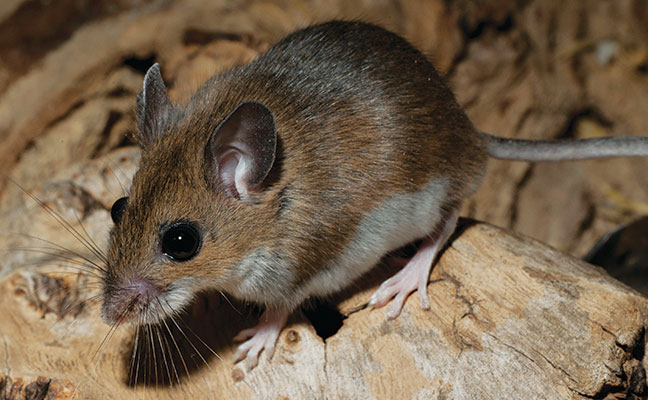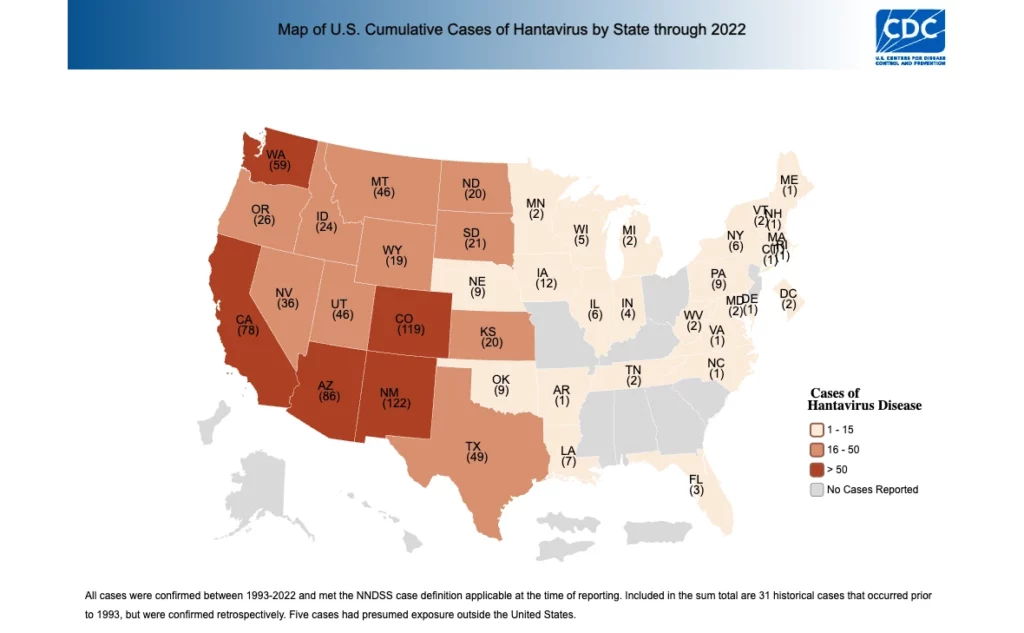
Mono County Public Health, based in Mammoth Lake, Calif., recently confirmed a third hantavirus-related death in the town. This is the confirmed cause of death for local resident Betsy Arakawa, the wife of actor Gene Hackman, that made headlines when the couple was found dead in their home on Feb. 26. This week, several news outlets are reporting that Arakawa, who is one of the three deaths confirmed by the agency, was searching online for “flu-like symptoms” in the days before she died. Hackman himself has not reported to have had exposure to hantavirus, and instead died of complications from heart disease and Alzheimers.
Hantavirus is an often fatal illness that humans can contract through contact with — especially inhaling airborne particles of — the droppings, urine or saliva in infected deer mice (Peromyscus maniculatus).
Deer mice are widespread in the Eastern Sierra region, the agency noted in its news release. But what is concerning to authorities is that they are having trouble connecting the newest victim, a young adult, with exposure to the disease.

“A third case of Hantavirus Pulmonary Syndrome (HPS), each of which has been fatal, is tragic and alarming,” Mono County Public Health Officer Dr. Tom Boo said in the release. “We don’t have a clear sense of where this young adult may have contracted the virus. The home had no evidence of mouse activity. We observed some mice in the workplace, which is not unusual for indoor spaces this time of year in Mammoth Lakes. We haven’t identified any other activities in the weeks before illness that would have increased this person’s exposure to mice or their droppings.”
“We’ve been aware of this suspected case for some weeks, but it has taken time to obtain testing,” he added. “The occurrence of three cases in a short period has me worried, especially this early in the year. Historically, we tend to see Hantavirus cases later in the spring and in the summer.”
In the April 3 news release, Dr. Boo reported the agency had gone about four weeks without any additional suspect cases, ”but remain concerned about the increase in activity.“
”I want to emphasize that as far as we know, none of these deceased individuals engaged in activities typically associated with exposure, such as cleaning out poorly ventilated indoor areas or outbuildings with a lot of mouse waste,” he said. “Instead, these folks may have been exposed during normal daily activities, either in the home or the workplace. Many of us encounter deer mice in our daily lives and there is some risk. We should pay attention to the presence of mice and be careful around their waste.”
Dr. Boo went on to explain that each Hantavirus case is investigated by local and state public health officials: “Each of our recent cases lived and worked in Mammoth Lakes and experienced illness beginning in February. When a person has died, we can only talk to people who knew them about the places they were and things that they did in the weeks before they got sick. We know that one person had numerous mice in their home. No evidence of mice was found in the other two homes. In all three cases, there was some evidence of mice in places they had worked, but no major infestations were found. Investigators did note that one person did some vacuuming in one or more areas where investigators later found mouse droppings. Vacuuming can aerosolize the virus from mouse waste, spreading the virus through the air and [leading] to infection.”
Leave A Comment